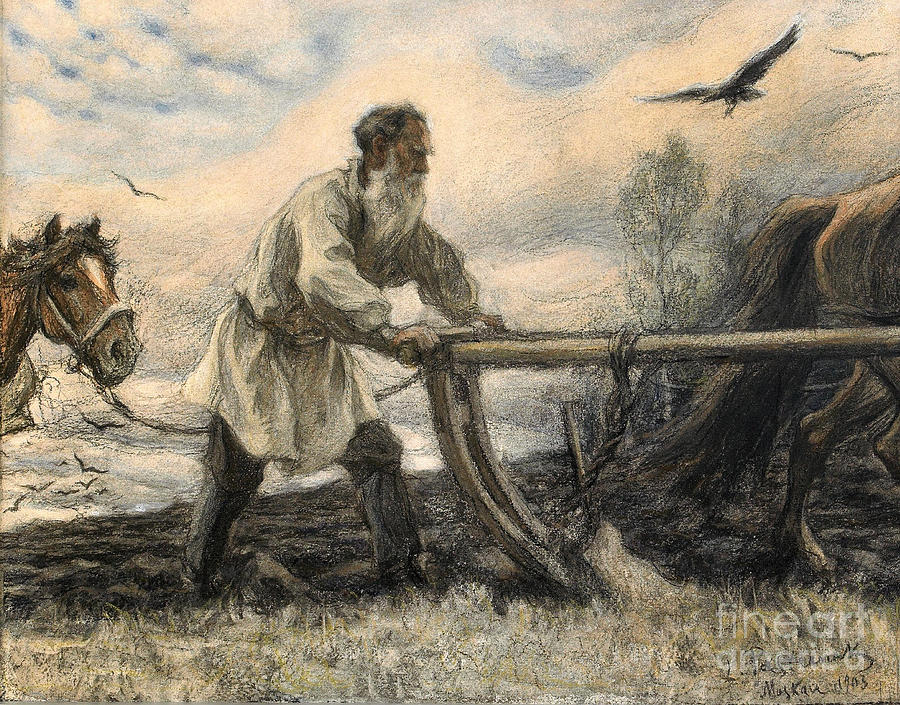Leo Tolstoy Archive
Written: 1908
Source: From RevoltLib.com
Transcription/Markup: Andy Carloff
Online Source: RevoltLib.com; 2021

And also Jesus told about that this parable. He said: “One rich man began reckoning with his debtors. And a debtor who owed him thousands of rubles was brought to him. And he wasn’t able to pay the rich man. And for that the rich man could decide to sell the debtor's property, and his wife, and his children, and the debtor himself. But the debtor began to beg for mercy from the rich man. And the rich man pardoned him and forgave him the whole debt. And then this man’s debtor, a poor man, came to him and began to ask him to forgive his debt. But the debtor, whom the rich man has pardoned, did not have mercy on his own debtor, but demanded the immediate payment of the whole debt. And no matter how the poor man bowed or begged, the pardoned man hasn’t pardoned his own debtor, and instead he put the poor man in prison. People saw that, and went to the rich man, and told him what this man has done. Then the rich man called his debtor back and said to him: I forgave you your entire debt because you begged me to. And so you had to pardon your own debtor for what I have pardoned you. And what did you do? And the rich man filed a lawsuit against his debtor. The same happens to us, if we do not forgive, from all our heart, those who are guilty before us. Any quarrel with our brother binds us, and distances us from our Father. And therefore, in order for us not to distance from God, we need to forgive our brothers and be in peace and love with them. (Matthew 15, 23-35, 18, 19)
Questions:
1) What is the moral of the parable about the master and the debtor?
2) What does the parable mean?
3) Why is it necessary to eliminate any quarrel?